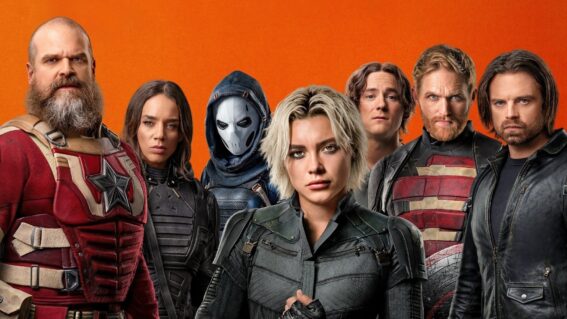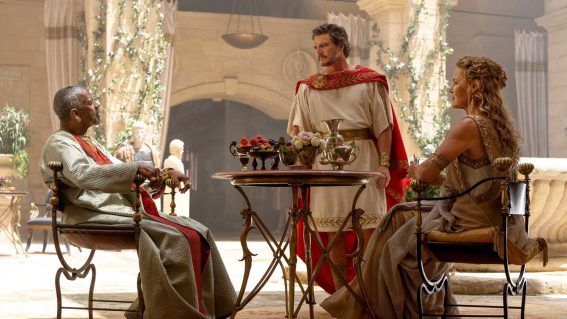“Will I be able to recognise my own foolishness?” Marlon Williams on his new doco
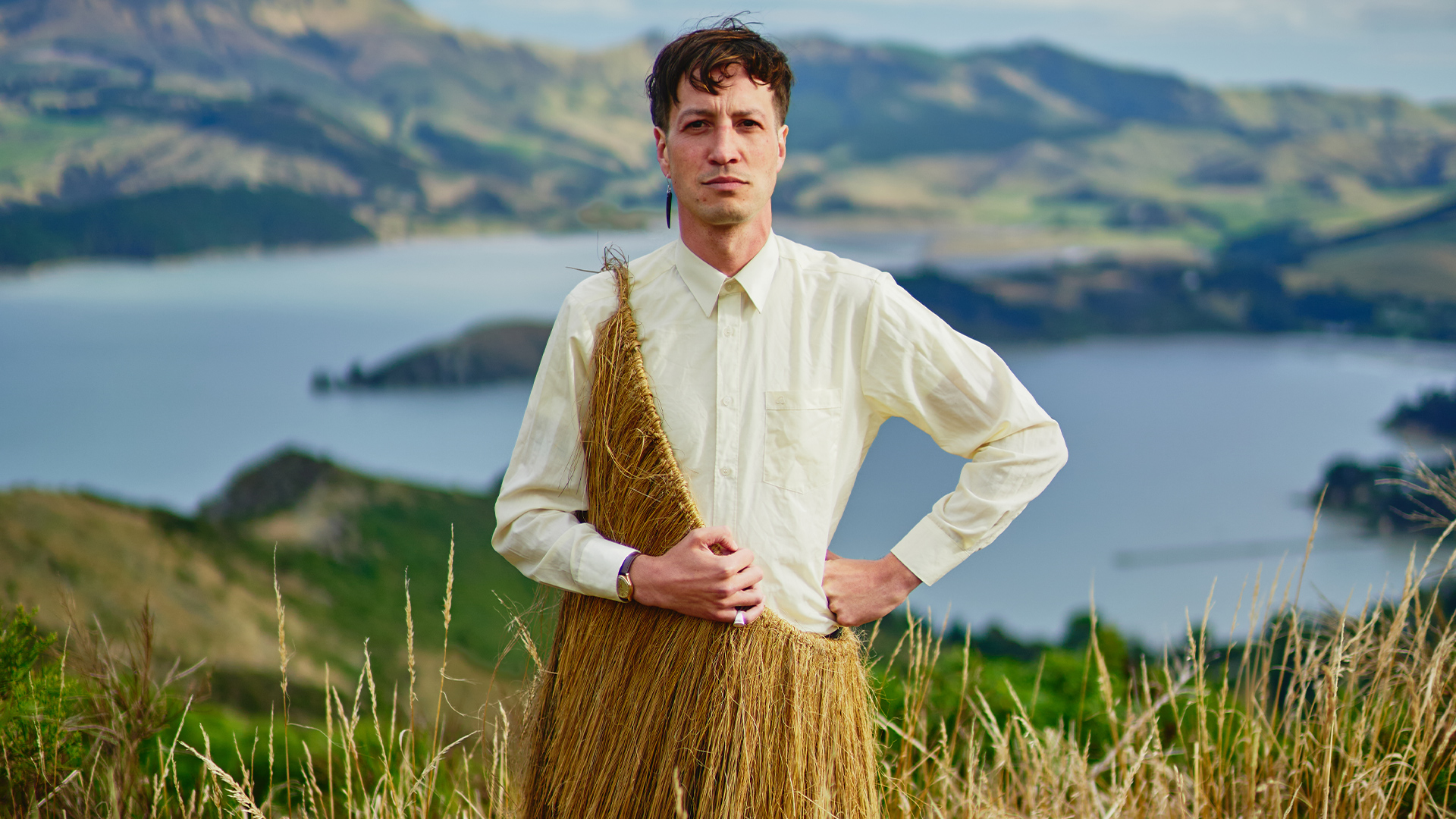
Acclaimed musician Marlon Williams’ multi-year journey making an album in Te Reo Māori is captured in new documentary Marlon Williams: Ngā Ao E Rua – Two Worlds. Steve Newall sits down to chat with Marlon Williams and director Ursula Grace Williams.
Marlon Williams: Ngā Ao E Rua - Two Worlds
Aotearoa’s Marlon Williams (Ngāi Tahu, Ngāi Tai) is a performer who seems to excel at everything he tries his hand at. An acclaimed songwriter and performer, he’s also an increasingly skilled actor, as evidenced by his turns Sweet Tooth and A Star is Born. His decision to make an album entirely sung in Te Reo Māori (a language he’s not fluent in) presented a significant, personal new challenge—raising the stakes further, the years-long process of making what would become the album Te Whare Tiwekaweka was captured in accompanying documentary film Marlon Williams: Ngā Ao E Rua – Two Worlds, which has just celebrated its world premiere.
“Marlon was really clear that he wasn’t at a point in his career that he wanted to make a biopic,” says director Ursula Grace Williams. “He didn’t want to look back as if this was his career done and dusted.” For the benefit of everyone, including (and especially) the audience, the making of Te Whare Tiwekaweka offered an opportunity to do much more than recount the beats of Marlon’s career. As Ngā Ao E Rua’s director says, “the documentary is a lot more about him and his processing who he is and who he’s been on that journey for the last four years.”
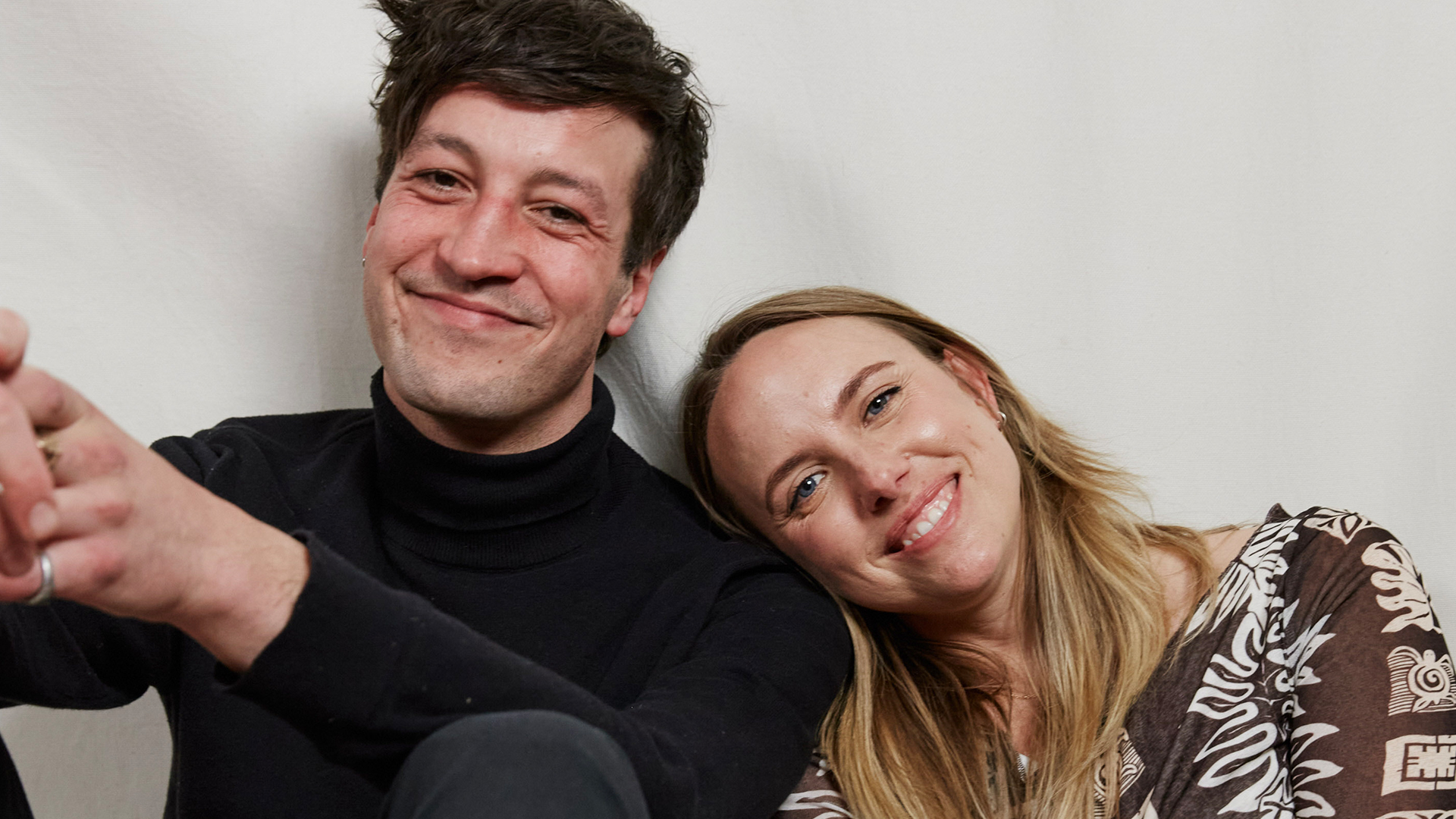
That multi-year journey to make an album in Te Reo Māori was a challenging one for the songwriter. Not just because he isn’t fluent, but because of his instincts when it comes to things he’s not naturally good at. “I will throw something away if it’s not immediately accessible,” Marlon shares. “So it’s been therapeutic having some deeper sense of committing to the bit.”
“I’m disappointed in how far I’ve gotten with my reo,” Marlon says. “But regardless of where I got to, I still wanted to make the record, you know. There’s some funny reo in there, there’s some bits that I don’t even fully understand myself still in the album. But, you know, I’m never looking for perfection. In terms of language, anyway. I’ve been hit up by singing teachers my whole life, for not being able to say an ‘R’ like, roll an ‘R’ properly.”
Lights. camera, action
Marlon’s reckoning with language lends the film an additional perspective on the creative process, an intellectual exercise that’s usually conducted solo, and very challenging to capture on camera.
“I knew that one way or another, whatever happened, people would be watching me being vulnerable,” he says. As an artist who describes himself as spending so much time shaping things “just so”, letting a camera get into his practice took a lot of thinking through, just for Marlon to be aware of what he was showing.
“People were a little bit shocked to see the mystery taken away from things,” he says of early reactions to the film: “And this is what I was hoping would happen.” Marlon cites shots where he’s sitting with Kommi Tamati-Elliffe (friend, co-writer and lecturer in Te Reo Māori among other things), both on their phones, deep in a thesaurus. It’s hardly the stuff of rock biopics that falsely romanticise how inspiration strikes.
That’s something addressed by the film’s director, too: “Process can often be, you know, a bit like somebody sitting down, writing and thinking, right?” Capturing that visually is not something that’s necessarily “entertaining”, Ursula notes, deploying inverted commas.
“I kind of knew that was going to be the case, and that process had to be a subtext,” she says. “I had to be led by Marlon, so he was inviting me into the workshops with him and Kommi.” These process-heavy, quite intensive sessions saw the songwriter grapple with his relative inexperience with the reo: “They were sitting down, going through where he had come with his kupu [vocabulary] and what the different melodies were going to be and shaping that,” says Ursula. The director seized this opportunity to capture Kommi’s expertise, as well as leaning into where Marlon was at his journey too.
Toitū Te Tiriti
This journey played out against one of the country’s most heated conversations about Māori-Pakeha relations in recent memory. The National-ACT-NZ First coalition assumed power in November 2023, with policies widely perceived as anti-Te Reo, including a pushback against Māori names for government departments. Then there was the hugely controversial and unpopular Treaty Principles Bill, which sought to narrowly redefine the country’s founding document, the Treaty of Waitangi.
While Ngā Ao E Rua was being filmed, and as Marlon Williams stared down his own relationship with Te Ao Māori, protests against the Treaty Principles Bill took place around Aotearoa. Hīkoi mō te Tiriti, a march on the nation’s capital, may have been the largest protest ever seen in Wellington, and possibly the largest in New Zealand’s history. Public submissions on the bill ended up numbering in excess of 300,000, with 90% opposed, a result that was far from certain with the amount of oxygen being given to the bill’s backers.
Marlon recalls feeling “untrammelled” by the backdrop. “Through some lens, it’s a political act to make a record like this,” he says, but notes how, to him, politics is always downstream of whatever he’s doing. “I just write songs about love or whatever, you know. There was other family stuff and psychological stuff going on, but not the state of the nation stuff.”
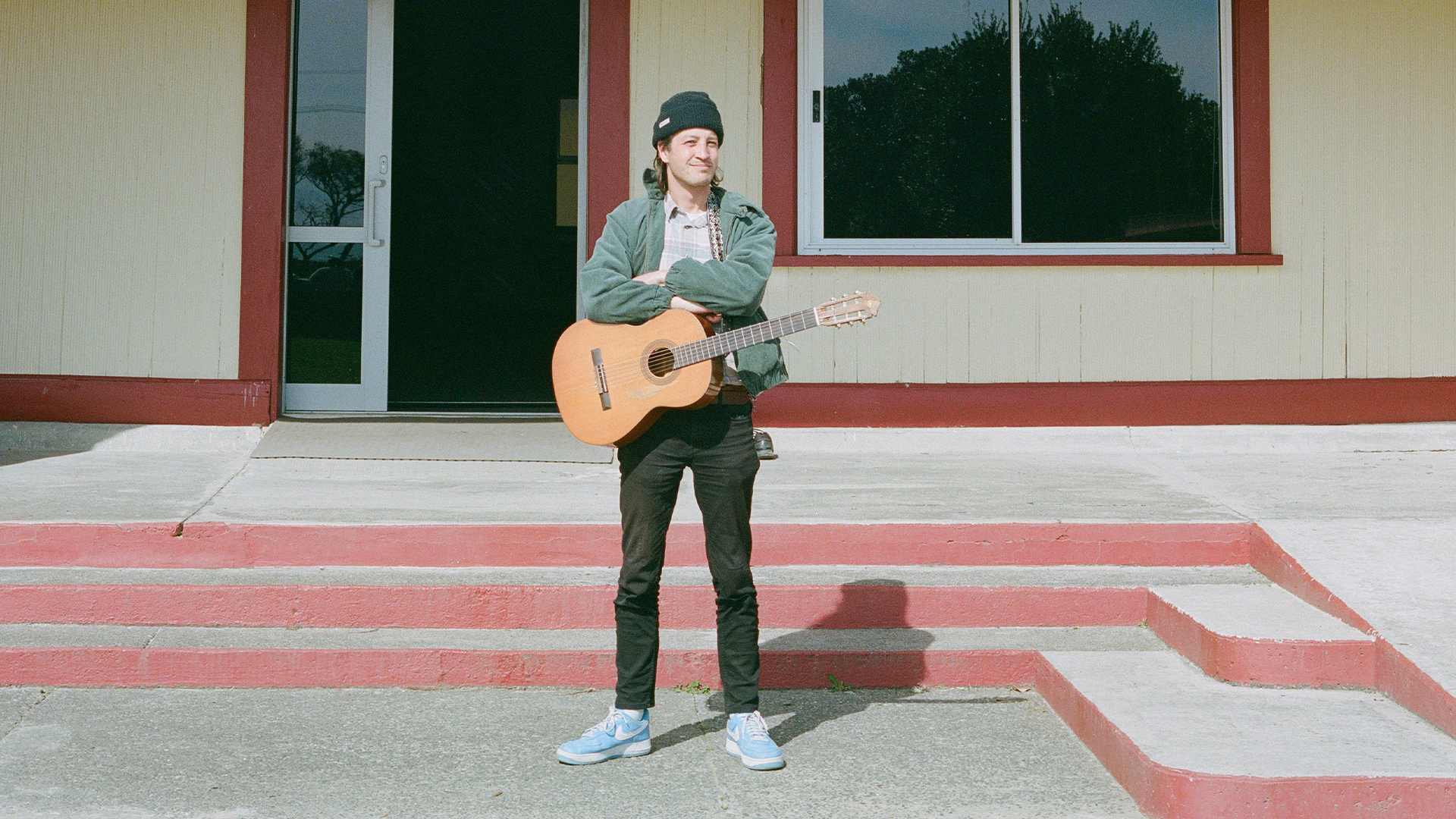
While that may have been true for the songwriting and recording process, the documentary director takes a stronger view. “Well, it is political,” Ursula says. “We thought about the backdrop of Aotearoa a lot during the filming of this, and using that as a backdrop was very, very interesting, for sure.”
“I was thinking a lot about the political of the everyday, and these small moments of talking about things in a certain way or documenting things in a certain way,” Ursula continues. She notes the political statement inherent in what it depicts—that it doesn’t have to be a protest to say ‘I stand by Te Ao and Te Reo Māori’.
“It’s sometimes those everyday statements, or those everyday friendships or those everyday alliances that show and tell people where you’re at,” she says. “And so I think Marlon was really brave in undertaking what he did, and particularly in terms of being on screen doing it. I think we all show our alliance as filmmakers, editors, producers, directors, cinematographers, in terms of where we’re at as Tangata Tiriti or Tagata Pasifika, or, you know, wherever we stand within that framework.”
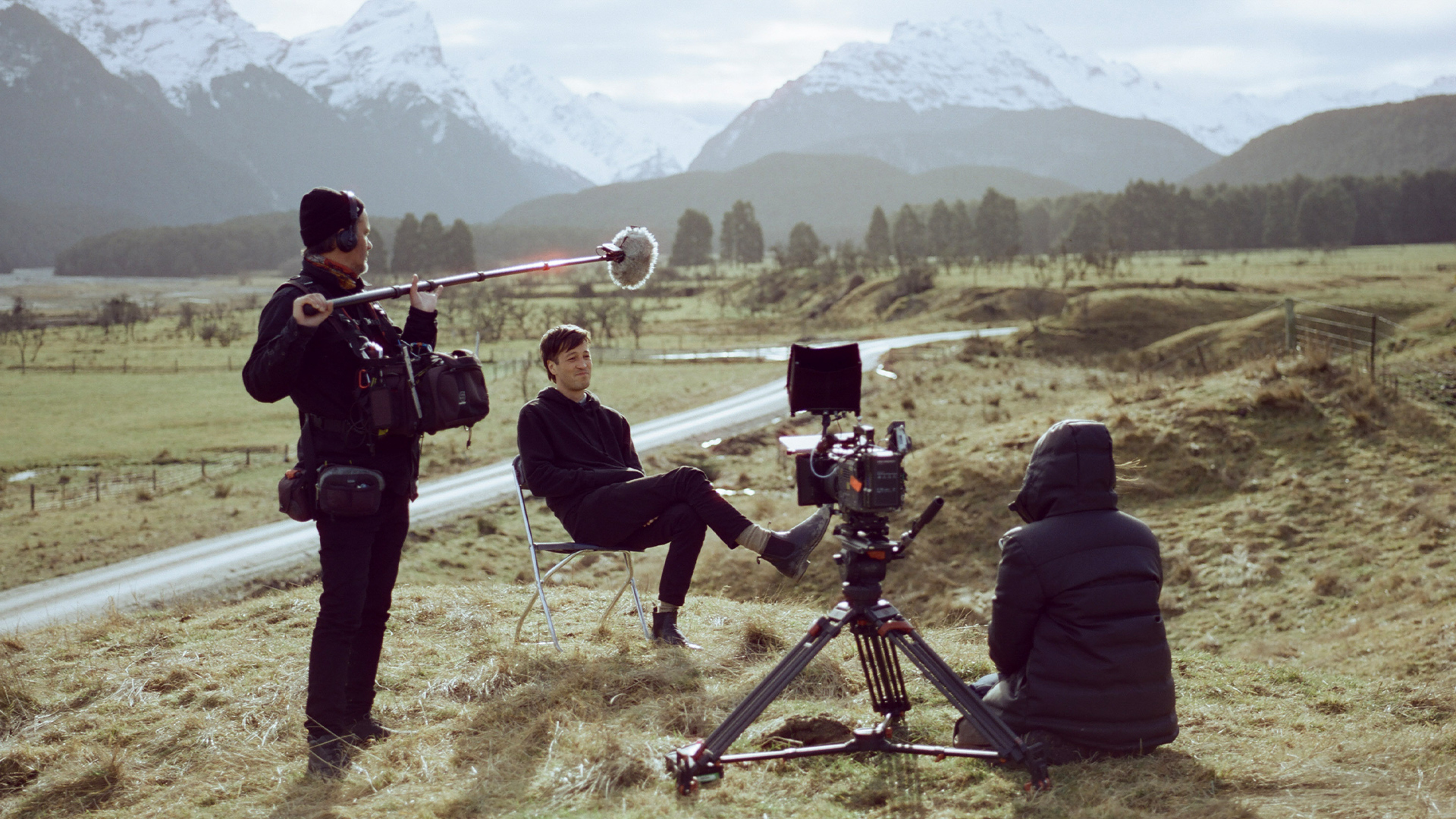
Alongside Marlon’s relationship with Te Ao Māori, is another that hangs over the film—and that’s his relationship with the camera. Comfortable acting in film and TV, appearing in music videos and interviews, he’s taken a lot of ownership over how he’s perceived, increasingly shaping a visual aesthetic.
“I had a bit of a eureka moment when I realised that the way we take in media, and the way we consume music, a lot these days, we do it with a visual accompaniment,” Marlon says, noting a songwriter’s duty of care to consider this in their work. “It’s not about following the same narrative,” he tells me, “but it’s just that you’ve got some intentionality in the coloring of things.”
That intentionality is perhaps seen most clearly as Marlon Williams has increasingly taken on directorial responsibilities for his music videos. But even without those credits, he’s certainly a camera-savvy subject. I asked his director here if that posed a challenge for their film.
100%, Ursula confirms. “It was super interesting the first few days shooting with Marlon,” she says, “because he’s a natural and has been followed around by cameras since he was 14 years old.” Breaking down that wall was integral to the filmmaker’s goal of getting true vérité—everyday authenticity—because she didn’t really want to see a difference between on- and off-screen Marlon.
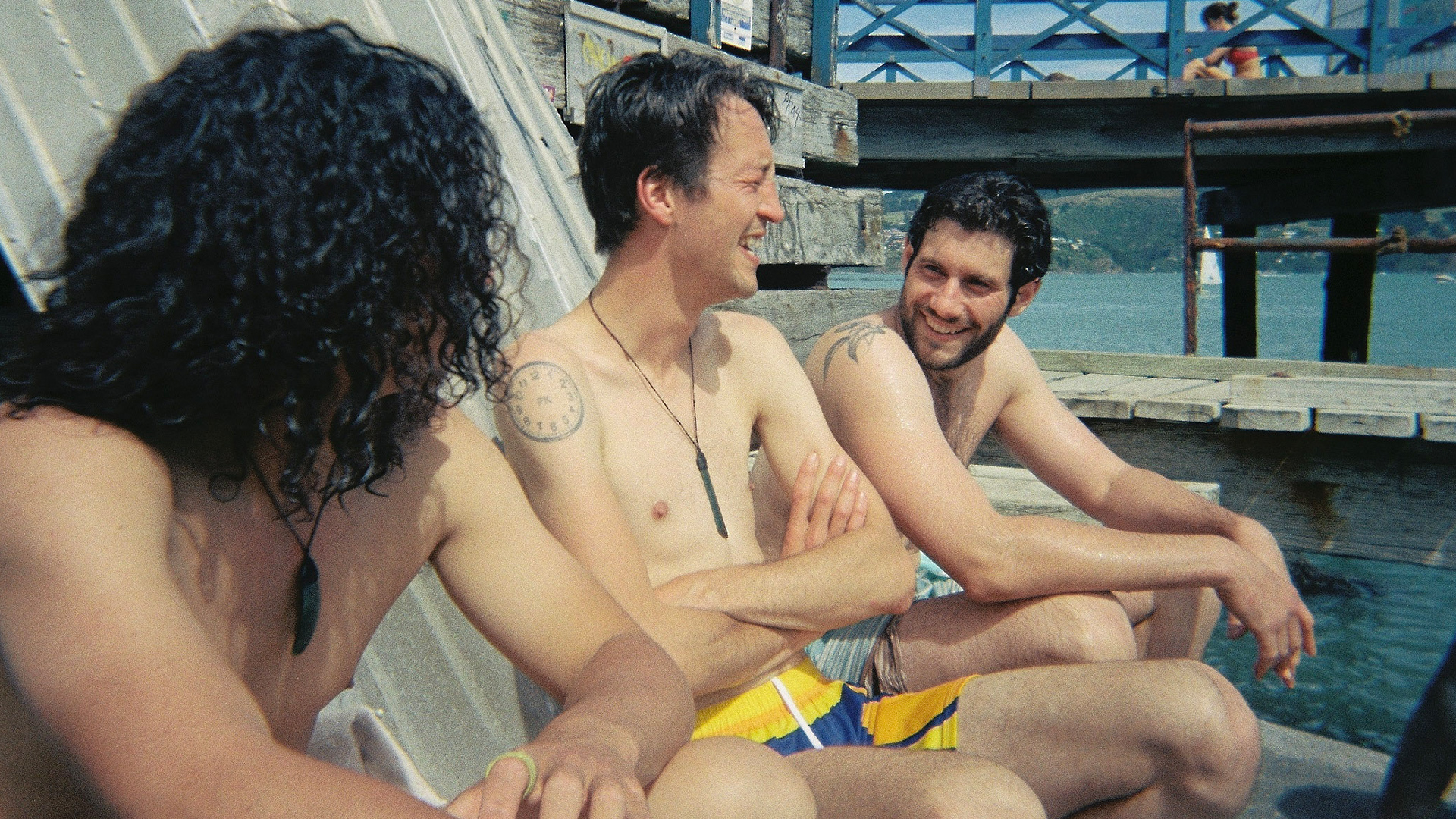
I wondered aloud if there were personality traits of Marlon’s that posed challenges from a documentary perspective, to do with his relationship with the camera, or just opening himself up to scrutiny in general.
“One thing would be quoting other people,” the director considers. “Marlon, he’s extremely intelligent, and he’s well read. His dad was a librarian, and so he can pull quotes or facts or trivia or whatever, just out of the hat. And that was definitely a tool that was used to kind of mask what he thought, or what he felt.”
“He could turn to something and go ‘well, as Hemingway said, blah, blah, blah, blah’, and then I’d be like, ‘Yes, but what do you think about this, and how do you feel about it?’” Over time that slowly left, she recalls, as did an apparent need of his to perform in some way or be doing something to entertain.
“He’s so entertaining as a human being, you know, he’s quite infectious to be around. He just has a buzz about him, you know.” For the film to work, Ursula felt she had to let him know that it was okay to drop that, that he didn’t need to be doing anything differently when they were there.
That’s something not as easy as it sounds. “Definitely, when we started I was very aware of the camera,” Marlon recalls. It’s not that he became unaware of it, necessarily, or by purely negating it, but through absorbing it into his world. “The observer effect really takes on a whole thing,” he says, noting our present era of reality TV and false idea of reality. “As soon as you’ve got an observer there, people aren’t behaving normally, you know, it’s just not real. So yeah, it’s been interesting.”
One foot in a normal life
Speaking of behaving normally, Aotearoa does pride itself on treating prominent people as somewhat normal (even if, in reality, our culture hasn’t traditionally been kind to “famous people”). Having last seen Marlon streetside at a K Rd eatery, I wondered how the increased scrutiny of a documentary sits next to having a normal, or normal-ish, life here.
“I don’t know,” he says: “It’s something I’m constantly trying to tweak. I’ve heard people talk about this, the uncanny valley of fame—where you’re not Johnny Depp, but you’re not nobody, either.”
“Famous but not quite”, is how Charli XCX puts it in I might say something stupid: “Onе foot in a normal life.”
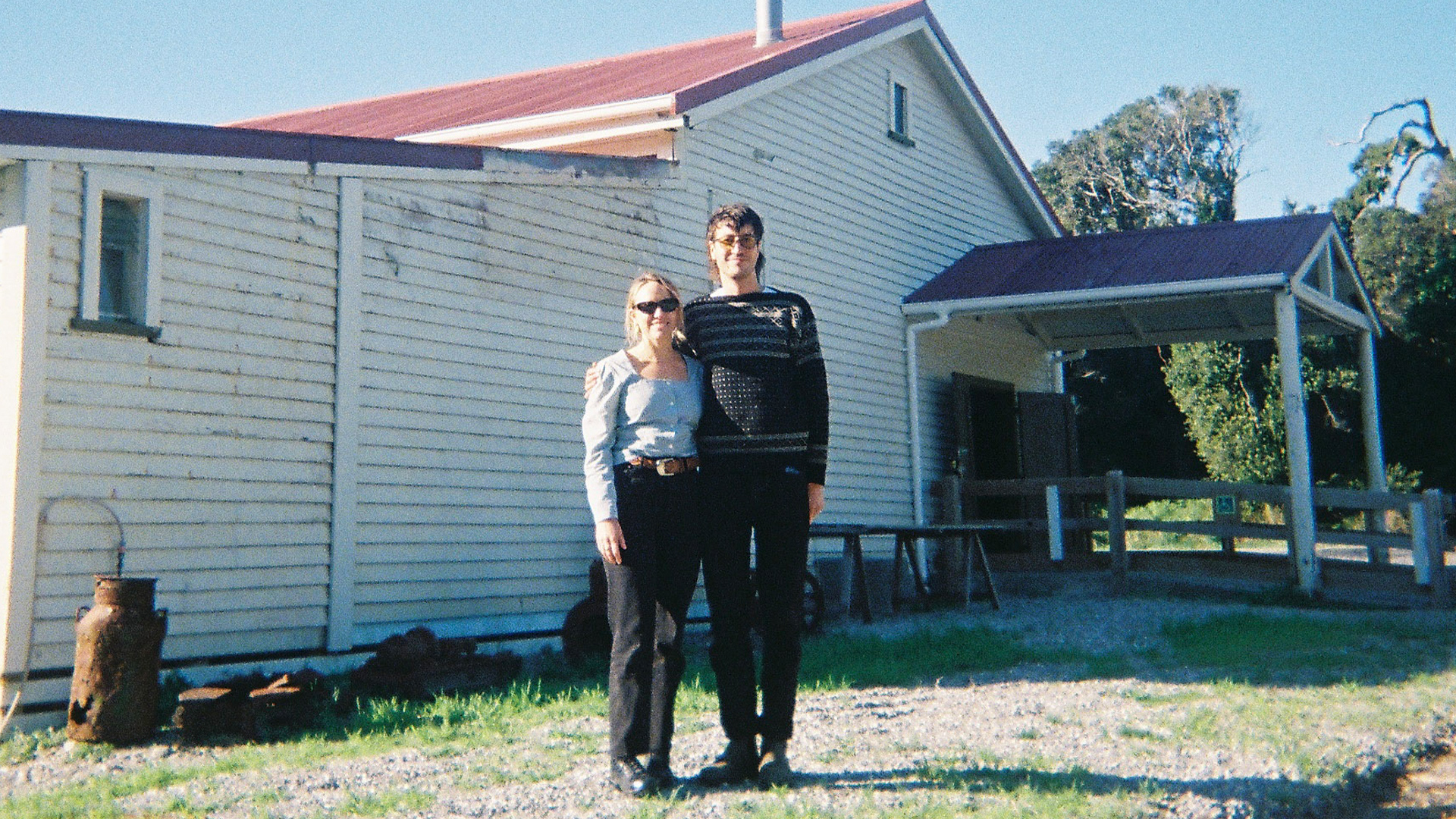
“I never behave in a way where I expect that people know who I am, unless you know, it’s becoming obvious,” Marlon shares. “But as a basic thing, I have no idea what the nature of any interaction is until often a long way through it. We’ll get five minutes into a chat, and then they’ll talk about ‘when you play that gig down there’—oh wait, you know who I am? And so it’s interesting. The naturalness can be, on one hand, very easy because it’s like, ‘Oh, it doesn’t really matter.’ But then you also find yourself trying to question every interaction, the more it happens.”
“You can’t play conkers in England”
As our interview time starts to draw to a close, I steer the conversation towards more predictable film-oriented territory. What were some music documentaries that came up when making this, I ask, either as gold standards or as things to avoid.
“Ursula’s far more schooled up in the history of documentary making,” Marlon replies. “I grew up on The Last Waltz, on No Direction Home—you know, these big, big classic American docos, I remember watching.”
With Ursula describing herself as “a bit of a documentary nerd, as you can probably imagine,” Marlon’s director lives up to his comment. “I wanted it to be very present moment,” she says, “but also have artistic flair.” One of the films that kept sweeping back into mind for Ursula was Alma Har’el’s Bombay Beach. “She just crafts beautiful observation met with cinematic performative pieces that kind of break the fourth wall in a different way to what we have done in our film,” the director shares. “The weave of a beautiful score and working with musicians whilst also telling a story at the same point in time, was something that I kept drawing back to.”
“I think that would probably be the main one. I watched so many rockumentaries along the way, but what was really interesting is that so many of them were set in past tense. You know, it’s people looking back, it’s archive, and it’s other people’s perspectives about somebody’s journey.”
How many of those people were Dave Grohl, I interject.
“Yeah, exactly, right? So there’s that, whereas this was a little bit different. And I guess there’s a few out there that have done it, like The World’s a Little Blurry, for example, about Billie Eilish where there is, like a real present tense. I definitely wanted to meet that world of, like, performativity and vérité.”
“Have you seen After The Screaming Stops?” Marlon offers as a contrasting (but by no means less satisfying) recommendation. For the uninitiated—and I suggest you initiate yourself with this pronto—this is a doco about the Goss brothers aka 80s pop duo twins Bros, full of so much inadvertent comedy you could swear it was a parody.
“I watched that just before we went in to do this,” Marlon says. “I was watching this whole thing, thinking ‘how did the filmmaker get such access to do this?’ And then looked at at the end and was like, ‘they fucking executive produced that?!’ They come across so ridiculously, that’s their documentary?!”
“I couldn’t believe it, and then it made me think, ‘what am I gonna be like? Will I be able to recognise my own foolishness?’ Sorry, Bros. I mean, I love it, it’s one of my favorite docos I’ve ever seen. But, you know, it really made me feel like it was a well timed watch.”






